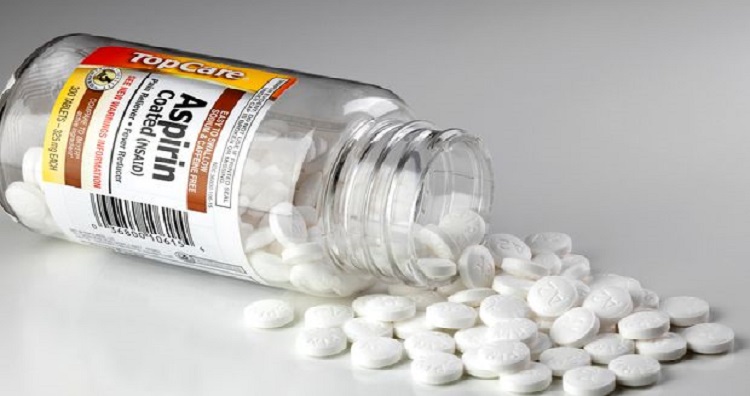
- Health
- Lead News
Study says: 'Aspirin can increase risk of heart failure by more than 25%'
- Health
- Lead News
- 25 November, 2021 22:48:09
News Desk: Aspirin, one of the most popular painkillers in the world, has been linked to causing a greater risk of heart failure, a new study finds.
Aspirin use is associated with a 26 percent risk of heart failure in people who have at least one predisposing factor or condition, according to researchers from the European Society of Cardiology. Predisposing factors that were taken into consideration in the study included high blood pressure, smoking, diabetes, obesity, high cholesterol and cardiovascular disease, reports Alarabia News.
However, the researchers noted that the influence of aspirin on heart failure was controversial and that the study aimed to evaluate the correlation between the two, in people with and without heart disease.
“This is the first study to report that among individuals with a least one risk factor for heart failure, those taking aspirin were more likely to subsequently develop the condition than those not using the medication,” study author Dr. Blerim Mujaj of Germany’s University of Freiburg, said in a statement.
“While the findings require confirmation, they do indicate that the potential link between aspirin and heart failure needs to be clarified.”
The analysis included just over 30,000 people who were at risk of developing heart failure, all of whom were enrolled from Western Europe and the US. Participants were aged 40 and above and free of heart failure at baseline.
The average age of the research’s participants was 67 years and 34 percent of them were women.
At baseline, 7,698 participants (25 percent) were taking aspirin. Throughout the follow-up period, 1,330 participants developed heart failure, the researchers reported.
The investigators assessed the association between aspirin use and incident heart failure after adjusting for sex, age, body mass index, smoking, alcohol use, blood pressure, heart rate, blood cholesterol, creatinine, hypertension, diabetes, cardiovascular disease, and treatment with renin-angiotensin-aldosterone-system inhibitors, calcium channel blockers, diuretics, beta-blockers and lipid-lowering drugs.
Taking aspirin was independently associated with a 26 percent raised risk of a new heart failure diagnosis.
“This was the first large study to investigate the relationship between aspirin use and incident heart failure in individuals with and without heart disease and at least one risk factor. Aspirin is commonly used – in our study one in four participants were taking the medication. In this population, aspirin use was associated with incident heart failure, independent of other risk factors,” Dr. Mujaj said.
“Large multinational randomized trials in adults at risk for heart failure are needed to verify these results. Until then, our observations suggest that aspirin should be prescribed with caution in those with heart failure or with risk factors for the condition.”




























Comment ( 0)